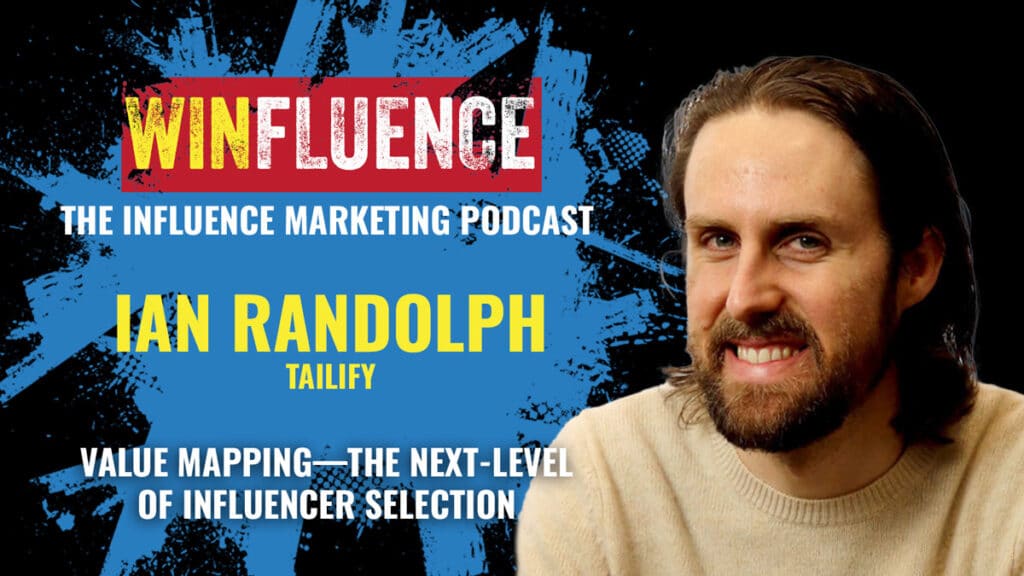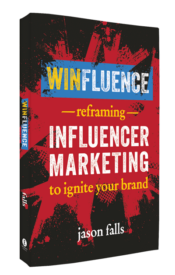Once upon a time, I was a fairly knowledgeable guy about social listening. (I still am, I think. But in the early 2010s I was kind of known for that.) Analyzing online conversations to mine for consumer insights became such a focus for me that I started a company around the practice. The Conversation Research Institute didn’t last long because we didn’t have artificial intelligence and machine learning algorithms to scale data analysis. We had a couple of people manually coding samples of conversation to extract signals from the noise.
Imagine my intrigue when hosting the Influencer Marketing Show earlier this year when Ian Randolph of Tailify talked about mining influencer content to map their values to that of a brand. It is his company’s process of helping companies identify better influence partners. Randolph is a cognitive scientist. Tailify’s mission is to help brands more accurately predict influencer marketing success by more perfectly matching the brand’s values to those of the influencer.

How do they do that? Deep social listening and analysis.
This is a fascinating next-level concept of identifying the right influencer for your brand. And it’s not just a concept. Tailify has clients like Rosetta Stone who have mapped their company values, identified language education influencers with similar values and the engagements are producing better results across the board.
The conversation is an intriguing one to say the least. The algorithms Ian has worked with were the predecessors of those that became the one Cambridge Analytica used in the 2015 and 2016 elections. Ian wasn’t involved and had left the parent company there at that point. But his efforts since have be fueled by a desire to help people use data mining from social media conversations for good, not bad.
We dive into how on this episode.
This episode of Winfluence, the podcast, is sponsored by Julius. You owe it to yourself to do a demo of Julius today!
I mention that software more than others in my book because it’s the platform I’ve been using for a few years now to find influencers, engage with them and manage campaigns. Julius has powerful filters that let me drill down find just the gardening influencers in New England. Or the people who get excited about brick oven pizza. But it certainly also gives me the mega influencers and celebrity influencers I might need to help promote anything from stationery to toothpaste.
And in most cases, it has contact information so I don’t have to go fishing to reach them.
Oh, and they have their own audience health score to help you weed out ones with suspect audiences or engagement.
All the elements of campaign management are in the software, too. I love the fact I can assign a purchase price or value to every single social deliverable that is a part of campaign, automatically track it based on the influencer using our campaign hashtag, and get an ROI report for each element.
You know I wouldn’t say this if it wasn’t true — You owe it to your brand or agency to do a demo of Julius today. Go to jasonfalls.co/julius and request one. That’s jasonfalls.co/julius.
The Winfluence theme music is “One More Look” featuring Jacquire King and Stephan Sharp by The K Club found on Facebook Sound Collection.

Order Winfluence now!
Winfluence – Reframing Influencer Marketing to Ignite Your Brand is available now in paperback, Kindle/eBook and audio book formats. Get it in the medium of your choice on Amazon or get a special discount on the paperback version of the book by clicking the button below, buying on the Entrepreneur Press bookstore and using the discount code FALLS20. That earns you 20% off the retail price. Read and learn why we’ve been backed into a corner to think influencer marketing means Instagram and YouTube and how reframing it to be “influence” marketing makes us smarter marketers.


